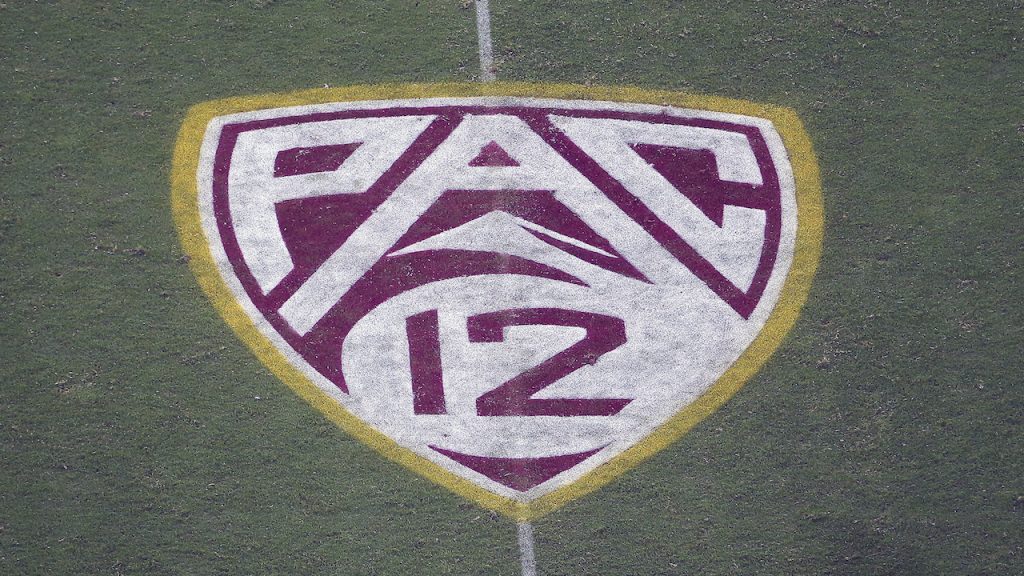The anticipated delay in College Football Playoff expansion became a harsh reality on Friday when the CFP announced it would remain a four-team event through the 2025 season.
“The Board of Managers has accepted a recommendation from the Management Committee to continue the current four-team playoff for the next four years, as called for in the CFP’s original 12-year plan,” Bill Hancock, the executive director of the CFP, said in a news release.
The 10 conference commissioners and Notre Dame’s athletic director make up the management committee. The 11 university presidents in charge of the CFP form the Board of Managers. (Washington State’s Kirk Schulz is the Pac-12 representative.)
“At the same time,” Hancock continued, “the Board expects the Management Committee to continue its discussions of a new format that would go into effect for the 2026-27 season.
“Even though the outcome did not lead to a recommendation for an early expansion before the end of the current 12-year contract, the discussions have been helpful and informative. I am sure they will serve as a useful guide for the Board of Managers and for the Management Committee as we determine what the Playoff will look like beginning in the 2026-2027 season.”
 Pac-12 commissioner George Kliavkoff commented on the development via Twitter:
Pac-12 commissioner George Kliavkoff commented on the development via Twitter:
“I share the disappointment felt by many college football fans today. I look forward to working collaboratively with other Commissioners to deliver a football playoff format that is more inclusive and balanced.”
The delay is a blow to the sport and its marquee event, which has been dominated by the SEC and a handful of other teams (Clemson, Oklahoma, Ohio State).
The delay also reflects poorly on the expansion process. In June, the CFP unveiled a 12-team model that seemed destined to gain swift approval and be implemented in time for the 2023 or 2024 seasons.
But only four members of the management committee crafted the model. Once it became public, the conferences that weren’t involved in its creation — specifically, the Pac-12, Big Ten and ACC — offered enough resistance on the specifics to stall the process.
Areas of disagreement included:
— The media piece: Would ESPN broadcast all four rounds, or would other networks have the right to bid on the event.
— The size of the event: There was support for both 12- and eight-team models.
— The process for qualification: Would the champions of the Power Five receive automatic berths.
— The logistics: Would games be played on campus in the middle of December; how would the Rose Bowl be impacted; would games be played on cold-weather campuses; and would the additional rounds be too great a physical burden on the players.
The prospects for expansion in the ’24 or ’25 seasons grew dimmer in late 2021, when it became clear the ACC would not support expansion in any form during the current 12-year contract cycle.
Because of the binding agreement, any change required unanimous approval from the Board of Managers. In other words, one conference could block the entire process.
How does the delay impact the Pac-12?
— Competitively, it’s a blow.
No conference needs expansion more than the Pac-12, which has placed just two teams in the event over the course of eight years (Oregon in ’14 and Washington in ’16).
The ongoing absence on the national stage has undermined the conference’s reputation and hurt recruiting. Many elite recruits on the West Coast have signed with teams in other leagues (Alabama, Clemson, Ohio State, etc.) to improve their chances of playing for a national championship.
— Financially, the delay could help the Pac-12 in one regard.
Expansion would have generated hundreds of millions of dollars in media revenue, to be split among the Power Five leagues in the 2025-26 fiscal years.
However, a delay in resource allocation among the major TV networks interested in broadcasting the expanded playoff could result in more available cash for the Pac-12 when it negotiates a new media rights agreement next year.
The same media entities likely to bid on the next incarnation of the CFP (ESPN, Fox, and perhaps CBS) are expected to be interested in the rights to Pac-12 football.
And there’s one more piece to consider:
The potential for the commissioners to develop an expansion plan for the fall of 2026 — and for that plan to be folded into the last year or two of the current contract cycle.
Kliavkoff hinted at that possibility during a news conference prior to the Pac-12 championship game in December.
“One of the great things that we started doing … is to start focusing on what we want the playoffs to look like beyond the current term. We don’t need 11 people to say ‘yes’ to get to a solution that would be good for college football,” he said.
“And if we find that solution, we can focus on whether or not we can also get to that solution for ‘24 and ‘25.”
Essentially, they would reverse engineer the expansion process.
Which is far better than no expansion.
Support the Hotline: Receive three months of unlimited access for just 99 cents. Yep, that’s 99 cents for 90 days, with the option to cancel anytime. Details are here, and thanks for your support.
*** Send suggestions, comments and tips (confidentiality guaranteed) to pac12hotline@bayareanewsgroup.com or call 408-920-5716
*** Follow me on Twitter: @WilnerHotline
*** Pac-12 Hotline is not endorsed or sponsored by the Pac-12 Conference, and the views expressed herein do not necessarily reflect the views of the Conference.
Related posts:

(AP Photo/Ralph Freso, File)
Pac-12 media rights: Nobody “spiraling off into places of despair” as process nears resolution, WSU president says
(AP Photo/Mark J. Terrill)
Pac-12 basketball: The Hotline’s picks for postseason awards and all-conference honors
(AP Photo/Mark J. Terrill)
Business of Sports – No, UCLA and USC won’t take their NCAA Tournament units to the Big Ten Hotline mailbag: Media coverage of the Pac-12 and Big 12, ESPN’s role, deadline for a deal, Larry Scott’s legacy and more
Hotline mailbag: Media coverage of the Pac-12 and Big 12, ESPN’s role, deadline for a deal, Larry Scott’s legacy and more
Jon Wilner
Jon Wilner has been covering college sports for decades and is an AP top-25 football and basketball voter as well as a Heisman Trophy voter. He was named Beat Writer of the Year in 2013 by the Football Writers Association of America for his coverage of the Pac-12, won first place for feature writing in 2016 in the Associated Press Sports Editors writing contest and is a five-time APSE honoree.
